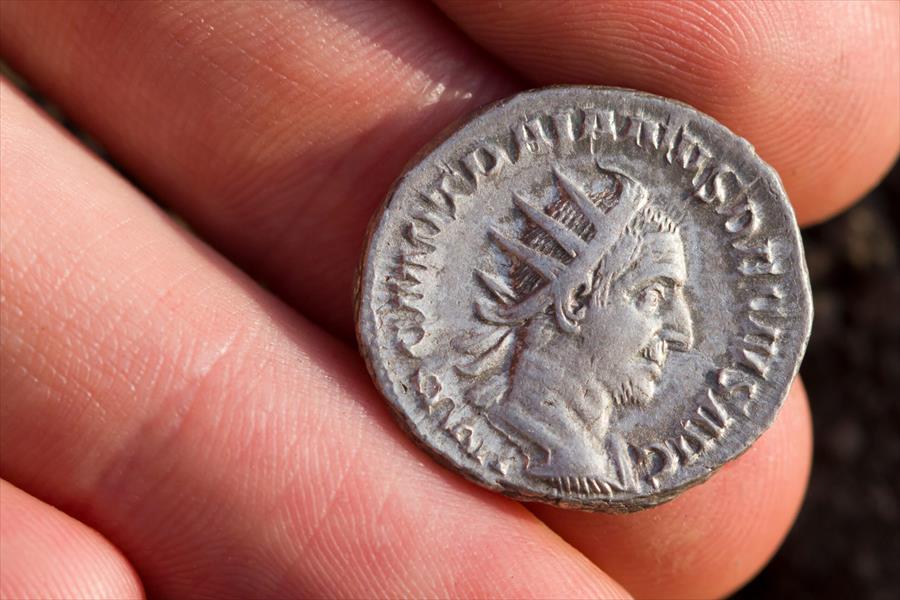Why Do Silver Coins Tarnish?
Silver coins are prized by collectors and investors for their beauty, rarity, and value. But sometimes, silver coins can develop a dark or black tarnish that can affect their appearance and marketability. Below, the experts from First National Bullion and Coin, Carlsbad precious metals dealers with years of experience collectors can trust, explain what causes silver coins to turn black and how can you prevent or remove it.
The Science of Silver Tarnish
Silver is a noble metal, which means it’s resistant to corrosion and oxidation in moist air. However, silver can react with sulfur compounds in the air, such as hydrogen sulfide, to form silver sulfide. Silver sulfide is a black compound that adheres to the surface of silver coins, forming a layer of tarnish.
Silver tarnish isn’t harmful to the metal itself, and it doesn’t affect the purity or weight of the coin. However, it can reduce the luster and contrast of the coin’s design, making it less attractive to collectors and buyers. Some collectors may prefer coins with natural toning, which is a thin layer of color caused by oxidation of different metals in the alloy. Toning can enhance the beauty and value of a coin, depending on its hue, intensity, and pattern. However, toning is different from tarnish, which is usually thicker, darker, and more uniform.
How to Prevent Silver Tarnish
The best way to prevent silver tarnish is to protect your coins from exposure to sulfur compounds in the air. You can do this by storing your coins in a cool, dry, and well-ventilated place away from sources of pollution, such as industrial fumes, car exhaust, or rubber products. You should also avoid touching your coins with bare hands because the oils and acids on your skin can accelerate tarnishing. Instead, use cotton gloves or tongs to handle the coins.
Another way to prevent silver tarnish is to use anti-tarnish products, such as strips, bags, or cloths, that contain chemicals that absorb or neutralize sulfur compounds in the air. You can place these products in your coin storage containers or wrap them around the coins. However, you should be careful not to let them touch the coins directly, since they may leave residue or cause abrasion. You should also replace them regularly because they lose their effectiveness over time.
How to Remove Silver Tarnish
If your silver coins already have tarnish, you may want to remove it to restore their original appearance and value. However, you should be very cautious when cleaning your coins, since improper methods can damage the surface and reduce the numismatic value of your coins. In general, it’s advisable to consult a professional coin dealer or conservator before attempting any cleaning procedure.
One of the safest and most effective ways to remove silver tarnish is to use a commercial silver polish or dip that’s specially formulated for coins. These products contain mild abrasives or chemicals that dissolve the silver sulfide without harming the metal underneath. Follow the instructions on the product label carefully and use a soft cloth or cotton swab to apply the polish or dip gently and evenly. You should also rinse and dry your coins thoroughly after cleaning.
Another way to remove silver tarnish is to use a homemade solution of baking soda and water. This method works by creating an electrochemical reaction that converts the silver sulfide back into silver. You’ll need a glass bowl, aluminum foil, baking soda, hot water, and salt. Here are the steps:
- Line the bottom of the bowl with aluminum foil
- Sprinkle some baking soda and salt on the foil
- Pour some hot water into the bowl until it covers the foil
- Place your silver coins on the foil, making sure they touch each other and the foil
- Wait for several minutes until you see the tarnish disappear
- Remove your coins from the bowl and rinse them with clean water
- Dry your coins with a soft cloth or paper towel
This method is gentle and inexpensive, but it may not work for heavily tarnished coins or coins with intricate details. It may also remove some of the natural toning that collectors value.
Whether they’re looking for expert advice on taking care of their precious metals or they want to buy silver bullion, Carlsbad residents should work with trustworthy precious metals dealers who offer high-quality service and have years of experience. Call on the industry-leading professionals at First National Bullion when you’re ready to invest in precious metals, including silver, gold, platinum, and palladium. Give us a call today.
The statements made in this blog are opinions, and past performance is not indicative of future returns. Precious metals, like all investments, carry risk. Precious metals and coins may appreciate, depreciate, or stay the same in cash value depending on a variety of factors. First National Bullion does not guarantee, and its website and employees make no representation, that any metals for sale will appreciate sufficiently to earn the customers a profit. The decision to buy, sell, or borrow precious metals and which precious metals to purchase, borrow, or sell are made at the customer’s sole discretion.


